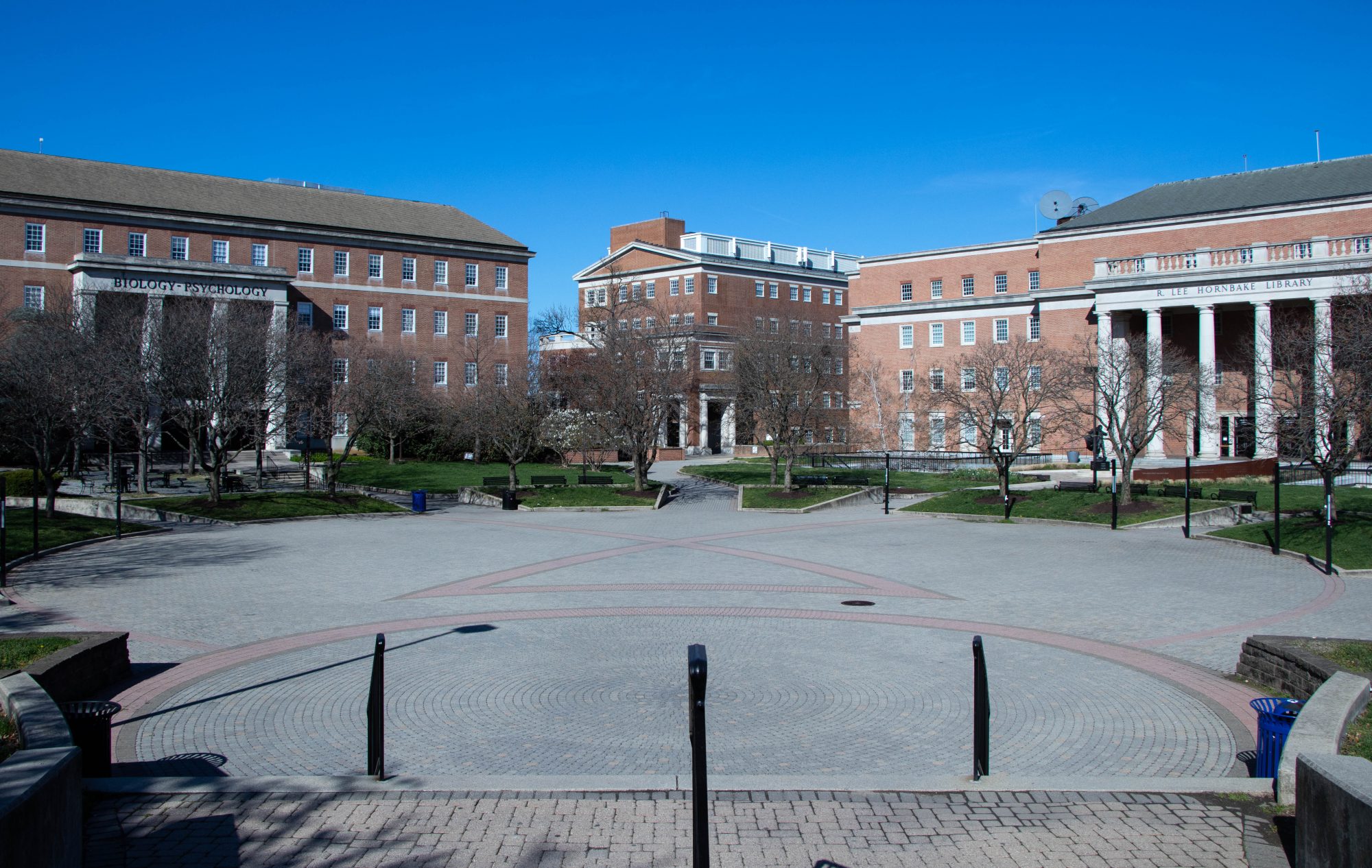By Jonathan Tercasio and Kanika Mehra
When University of Maryland professor Nathaniel Tablante began teaching an honors seminar in 2016 on animal and human disease outbreaks, he wasn’t sure it would last. Only seven students enrolled in the class, and within the first week, three had dropped out.
Four years later, though, as the coronavirus pandemic unfurls across the globe, Tablante’s seminar is more relevant than ever. Now, students aren’t just exploring the spread of outbreaks throughout history — they’re tracking one in real time.
“For them, it’s hands-on learning now. We’re not just doing simulations,” said Tablante, whose honors seminar is called “Catastrophic Animal and Human Disease Outbreaks: What Else Can We Do To Prevent Them?”
Tablante’s course is one of a handful at this university that have found their curriculums aligned with current events, as the spread of COVID-19 upends life on campus and around the world. Suddenly, what were once theoretical debates and discussions in the classroom have taken on a new kind of urgency.
[Read more: “Trying to make lemonade out of lemons”: UMD professors prepare to move classes online]
Aida Roige’s course, “Bioethics: Regulating Right and Wrong,” covers research ethics and the allocation of scarce resources — two issues that have become increasingly pertinent as doctors facing equipment and supply shortages across the world must decide who to prioritize for treatment.
Lately, her students have been observing the real-life implications of the concepts they’ve been analyzing all semester — from discussing how the number of uninsured Americans during a pandemic makes health more of a public issue, to the dangers of promoting the use of treatments that haven’t been clinically approved.
They even looked at a 2014 study that took place in Maryland, where the public was asked to come up with criteria to decide how to allocate “lifesaving health care resources” should a public health emergency on the scale of the 1918 pandemic occur again.
“Ethical questions are just too important to be left for anyone to tackle at short notice when there is a need,” Roige said. “Philosophers are the experts on the moral risks involved with these decisions; they know the values reflected by the criteria, how well they cohere with other moral intuitions we have, which morally relevant outcomes may they lead to.”
Moving forward, Roige said she hopes the pandemic will lead to a higher demand for philosophy courses.
Another professor, Joan Kahn, teaches SOCY335: “Sociology of Health and Illness,” a class where students learn about the economic and social conditions that influence health and the health care system.
In late February, she said, it was “surreal” to read about the spreading coronavirus outbreak while simultaneously teaching the course.
[Read more: As online classes begin, some UMD professors juggle teaching and parenting at home]
“I don’t know that the students quite got it, just how big a deal this was,” she said. “I knew this was going to be a pivotal moment in our lives.”
Students in Tablante’s honors seminar have continued discussing the pandemic. Christine Zhang, a teacher’s assistant in the class, said that the coronavirus was usually brought up during class discussions in the weeks leading up to spring break as students compared responses to this outbreak to responses to previous ones.
To guide further analysis, Tablante even changed the prompt for the course’s final paper. Now, instead of investigating a disease outbreak of their choice, students will examine how different countries have responded to the COVID-19 outbreak.
Public health school dean Boris Lushniak says that he expects to see faculty across the university integrating current events with ideas already being discussed in classrooms.
He’s even anticipating several specialty courses to be developed on the coronavirus — perhaps a course on the university’s response to the outbreak, analyzing the different decisions that were made on each level.
“As an optimist — and I always say in public health, you have to be an optimist because the pessimists wash out really early — what we have to be able to say is, we’re learning each and every day,” Lushniak said. “And what we’re learning about this virus, about the pandemic, about society in general needs to be put into the classroom.”



